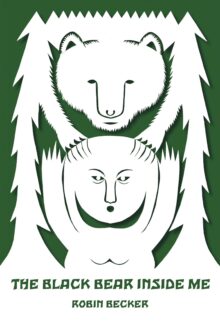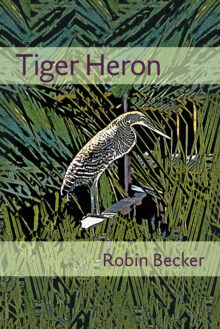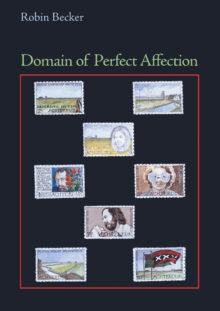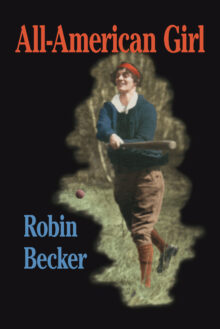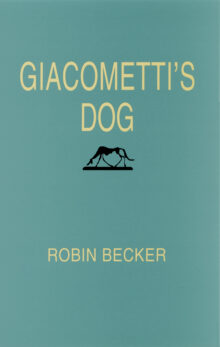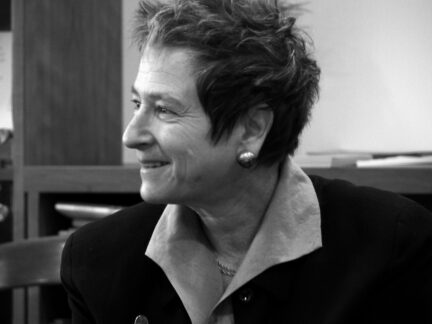

Robin Becker
Robin Becker received the Lambda Award in Poetry for All-American Girl and has held fellowships from the Massachusetts Cultural Council, the National Endowment for the Arts, and the Radcliffe Institute at Harvard. Her books include Tiger Heron, Domain of Perfect Affection, The Horse Fair, and GiacomettiÕs Dog. Professor Emeritus of English and WomenÕs Studies at Penn State, Becker serves as poetry and contributing editor for the WomenÕs Review of Books.
The Black Bear Inside Me
Becker celebrates the interconnectedness of creatures and places—never losing sight that much will turn out precarious, illusory, provisional. These poems speak, in ardent voices, about our affinities: an articulate, black bear mourns habitat loss; a frail man and failing dog become one; a scientist and her African grey parrot research language acquisition for thirty years. Ecologies interlace, as when a troubled family “sacrifices one member,/ as plants surrender leaves in times of drought.” Becker responds with rage and wit to corporate excess and intractable geo-politics. Love and friendship empower in wry narratives, though time “mows” down our days, though we may never escape “original cruelties.” Tragedies permeating our enmeshed, global identities haunt the book: the massacre of gay youth in Orlando; the terrors facing Cambodian teenagers working fishing boats. Wise, capacious, by turns unsettling and joyous, The Black Bear Inside Me incorporates histories and losses into a luminous present.
Tiger Heron
Appearance and disguise—in a Costa Rican rainforest, a West Village repair shop, or an intimate relationship—reveal the turbulence that undergirds daily life, as families and places undergo change. In “Elegy for the Norther Flying Squirrel” and “Divers,” Becker takes up the science of climate change and habitat loss. “Language that is by turns virtuosic and quiet, astonishing and accurate,” writes a reviewer of Becker’s 2006 collection, Domain of Perfect Affection for Jewish Book World Magazine. The challenge of “aligning loss with love” exerts a potent tension in Tiger Heron, as age comprises mortal bodies and intimacies end. A self-mocking wit propels characters “to find and lose and find each other again”—in the imagination and in the stories these poems tell. The final line of “The Sounds of Yiddish”—”Spare us what we can learn to endure”—closes a playful send-up, dramatizing language, culture, and power. Writing in The Washington Post, former U.S. Poet Laureate Robert Pinsky praises Becker’s “comic timing.” Longtime readers of Becker’s work will delight in poems cast in a variety of stanzas and experimental forms. Their occasions are diverse—an animal shelter, a failed trip to Venice, a hospice bedside—but Becker ultimately yokes a language of praise to our stumbling, humble, human efforts.
Domain of Perfect Affection
In Domain of Perfect Affection, Robin Becker explores the conditions under which we experience and resist pleasure: in beauty salon, summer camp, beach, backyard, or museum; New York or New Mexico. “The Mosaic injunction against / the graven image” inspires meditations on drawings by D_rer, Evans, Klee, Marin, and del Sarto. To the consolations of art and human intimacy, Becker brings playfulness—“Worry stole the kayaks and soured the milk”—suffused with self-knowledge: “Worry wraps her long legs / around me, promises to be mine forever.” In “The New Egypt,” the narrator mines her family’s legacy: “From my father I learned the dignity / of exile and the fire of acquisition, / not to live in places lightly, but to plant / the self like an orange tree in the desert.” Becker’s shapely stanzas—couplets, tercets, quatrains, pantoum, sonnet, syllabics—subvert her colloquial diction, creating a seamless merging of subject and form. Luminous, sensual, these poems offer sharp pleasures as they argue, elegize, mourn, praise, and sing.
The Horse Fair
In The Horse Fair, Robin Becker asks questions about citizenship and participation in the marketplaces—of bodies, of ideas, of objects—in which we function. She investigates how individuals marginalized by gender, religion, and sexual preference negotiate public and private spheres while inventing sustainable communities. Beginning with the great nineteenth-century French painter Rosa Bonheur, Becker has produced a number of multi-voiced, synthetic portraits, each within a framework of social history and a poetics of partiality—she speaks from the persona of Charlotte Salomon, child of assimilate, German-Jewish parents and grandparents and killed by the Nazis at the age of twenty-six; she appropriates passages from the Rosh Hashanah and Yom Kippur services; and juxtaposes them against stanzas that mourn her sister’s death and those that celebrate non-traditional families. Organized around the long meditations, other poems show Becker's dexterity with formal verse (sestina, sonnet, tercets) and her imaginative engagements with free verse.
The Horse Fair takes its name from Bonheur's monumental painting and serves as the vehicle through which Becker explores anti-Semitism, cross-dressing, and Bonheur's lifelong relationships with women. In Becker's hands, The Horse Fair transports us to the communal plaza where we come to barter and to buy, to study one another, to touch the foundation upon which we build our temporary habitations.
All-American Girl
Winner of the 1996 Lambda Book Award for Lesbian Poetry.
“With poignancy, honesty, and grace, Becker contends with the messy implications of her lesbian sexuality, Jewish identity, and sister's suicide. . . . Becker is acutely aware of, and devastated by, her many losses, but emerges defiant and admirably without regret or shame.”
—Boston Review
Giacometti’s Dog
Celebratory or eligiac, these poems record the author’s “two-headed journey” to root herself – geographically and emotionally – in the world. Becker’s poems are from remote and familiar outposts: the watery evanescence of Venice contrasts with the desert of the American Southwest; we lean with her over the rim of a canyon or stand back to study a Giacometti sculpture. From such settings arise poems on the death of a sibling, the consoling power of painting and sculpture; others celebrate the erotic and the capacity of the female body for pleasure and pain.

